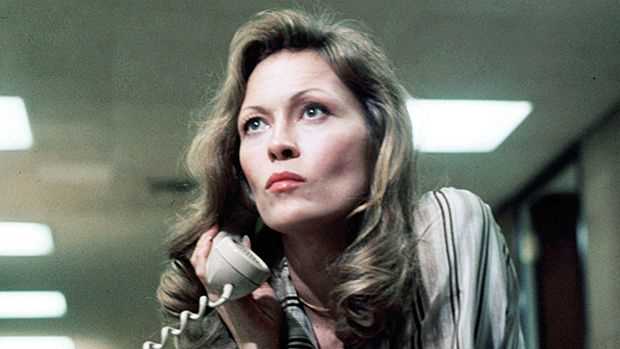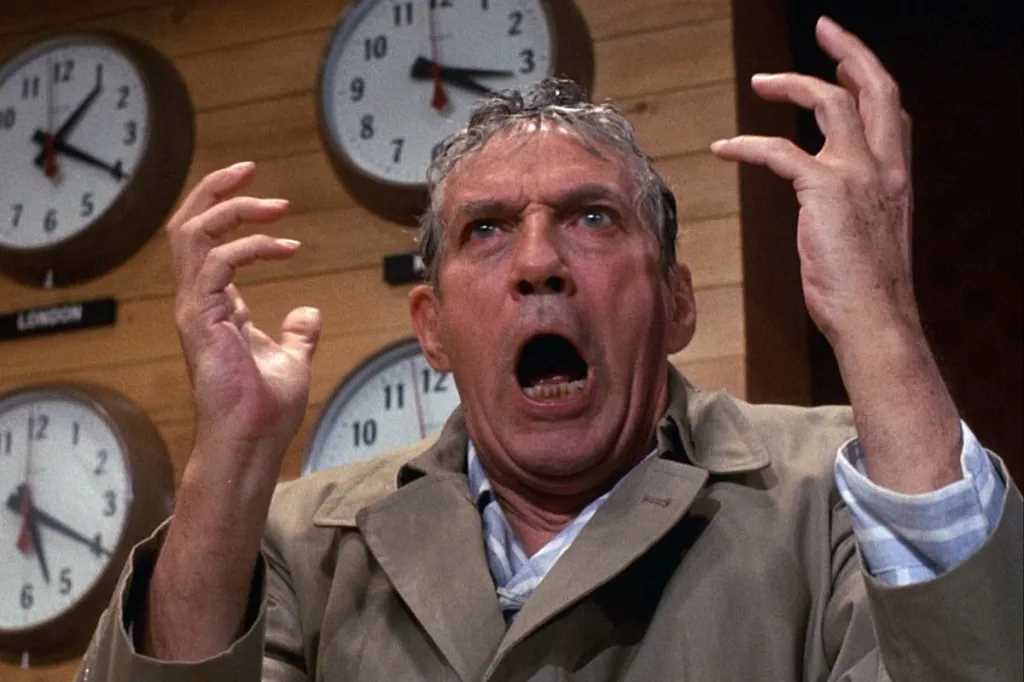Network
15In 1976 Sidney Lumet’s intense drama Network was released. It was a bold statement about capitalist ideological leanings of a TV news network, that would go on to win 4 Oscars, including two for its stars Peter Finch and Fate Dunaway, and for its screenplay written by Paddy Chayefsky.
The film, getting a welcome theatrical re-release, follows the actions of an on air news anchor, and the repercussions that follow.

"Welcome to QVC.Please hold as you are now in a queue...
Despite being the face of UBS News on air for many years, anchorman Howard Beale (Peter Finch) is informed he only has two weeks left on his contract.
He doesn’t take the news well, at all, as he declares, on air, that he is going to blow his brains out in two weeks time live on air.
It’s a news bulletin that takes everyone at UBS by surprise, with the powers that be wanting to get him off air ASAP, and keep him off.
But then the overnight ratings come in, and his announcement causes a massive spike. This leads those in charge to think that maybe they’re onto something, and that perhaps, they should give the public more of what they want, which is Beale.
So from being pushed out of the door, Beale now finds himself fronting his own show, being promoted as a “the mad prophet of the airwaves”. But the network soon discover that despite the healthy upturn in ratings, they come a quite a cost.

I just want to know what the time is now damnit?!
Despite being 48 years old, Lumet’s film is just a relevant now as it was then. TV networks still live and breathe by ratings, as do the shows that appear on them. And as fans of US shows know, the axe can swing pretty brutally if a show doesn’t hit its targets.
It also highlights the need to have the next big thing on TV, which will bring the audience. The idea of Peter Finch’s Howard Beale as the mentally unhinged ‘prophet’ is fairly tame by today’s standards, as you could see someone like Russell Brand look to create a similar alternative narrative in a podcast today, but still represents how a company is willing to embrace something outrageous in exchange for a larger audience share.
Paddy Chafesky’s Oscar-winning script is still a pretty dense piece of work, full of rich and provocative dialogue. It also has a number of monologues, some fairly lengthy, that you would be unlikely to get away with in this day and age.
It is a very adult, cerebral piece of work, which again you wouldn’t necessarily see today, unless you’re Scorsese, making it an impressive example of grown up cinema of the time.
The relationship between Dunaway and Holden’s characters does feel somewhat wedged in and surplus to requirements, but you can understand its appearance due to the extremely masculine heavy cast. And Dunaway’s character is a fascinating one, as she attempts give the network more of a counter-culture edge.
It’s a remarkable film that almost feels a precursor to the work of Aaron Sorkin, set as it is in a hectic newsroom.
It remains a classic example of old Hollywood, With a superb cast and biting script, that still rings true today; it’s darkly satirical, and yet still worrying relevant in these days of networks and streamers desperate for ratings, and the lengths that they’re prepared to go to obtain them.
